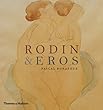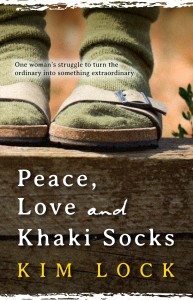 John Cheever is a wonderful writer, and his novel The Wapshot Scandal contains observed life and imagined adventure, bringing together ancient rituals and bourgeois affections and habits, private desires and deceptions and public reputations, romance called to reconcile a reality that resists, supernatural suspicions that subvert reason, and mournful, surprisingly poetic interrogations, as Cheever examines family and communal life. The novel does not contain stories that offer easy comfort, though their intimate cruelty and sensual pleasure and melancholy do entertain.
John Cheever is a wonderful writer, and his novel The Wapshot Scandal contains observed life and imagined adventure, bringing together ancient rituals and bourgeois affections and habits, private desires and deceptions and public reputations, romance called to reconcile a reality that resists, supernatural suspicions that subvert reason, and mournful, surprisingly poetic interrogations, as Cheever examines family and communal life. The novel does not contain stories that offer easy comfort, though their intimate cruelty and sensual pleasure and melancholy do entertain.
Tag: literature
The Price of Isolation: George Eliot’s Silas Marner
 It is a remarkable portrait of social misunderstanding, one that is so clear it illuminates current, similar but subtler suspicion of odd individuals in our own world. The money that Marner makes becomes important to him—obvious reward for his work. He is transformed by his isolation, his work, his money, his (often inhuman or at least unsocial) concerns: achieving independence but a spiritual withering.
It is a remarkable portrait of social misunderstanding, one that is so clear it illuminates current, similar but subtler suspicion of odd individuals in our own world. The money that Marner makes becomes important to him—obvious reward for his work. He is transformed by his isolation, his work, his money, his (often inhuman or at least unsocial) concerns: achieving independence but a spiritual withering.
Love and Cruelty and Money: Great Expectations, a novel by Charles Dickens
 It is hard to reconcile daily life and profound thought sometimes, but fiction gives us the semblance of both, reconciled. In Great Expectations, we see how shallow hopes give way to mature duties, friendship, love, and wisdom, when the little poor boy Pip gets a benefactor and a trip to London—he assumes Miss Havisham is his benefactor.
It is hard to reconcile daily life and profound thought sometimes, but fiction gives us the semblance of both, reconciled. In Great Expectations, we see how shallow hopes give way to mature duties, friendship, love, and wisdom, when the little poor boy Pip gets a benefactor and a trip to London—he assumes Miss Havisham is his benefactor.
A review of Maddaddam by Margaret Atwood
 The world of Maddaddam is harsh and often ugly world – particularly the Painballers – a group of criminals who have survived their Hunger Games style imprisonment a number of times and have lost their ‘humanity’ in the process. However, in spite of some pretty gruesome episodes, ultimately the story is a redemptive and satisfying one. The Craker’s naivety is charming, and beyond Toby and Zeb, the characters are delightfully Dickenesque – turning to fizz, flirting in scientific jargon, and cooking up a storm with weeds and lab-grown splices.
The world of Maddaddam is harsh and often ugly world – particularly the Painballers – a group of criminals who have survived their Hunger Games style imprisonment a number of times and have lost their ‘humanity’ in the process. However, in spite of some pretty gruesome episodes, ultimately the story is a redemptive and satisfying one. The Craker’s naivety is charming, and beyond Toby and Zeb, the characters are delightfully Dickenesque – turning to fizz, flirting in scientific jargon, and cooking up a storm with weeds and lab-grown splices.
A review of Rodin & Eros by Pascal Bonafoux
 Most essays are centred on a particular work, and collectively they cover a period of about 40 years (1871-1911), for Rodin was always working, sketching even at the last. We learn some interesting things: for example, that The Kiss (1899) was inspired by Dante; that Rodin saw Nijinsky dance; of his affinity with Baudelaire, Mirbeau and Flaubert.
Most essays are centred on a particular work, and collectively they cover a period of about 40 years (1871-1911), for Rodin was always working, sketching even at the last. We learn some interesting things: for example, that The Kiss (1899) was inspired by Dante; that Rodin saw Nijinsky dance; of his affinity with Baudelaire, Mirbeau and Flaubert.
A review of City of Dark Magic by Magnus Flyte
 City of Dark Magic is could be described as a psychedelic time traveling adventure. From the first chapter, it’s clear that this is no ordinary novel and the colorful cast of characters have their own agendas.
City of Dark Magic is could be described as a psychedelic time traveling adventure. From the first chapter, it’s clear that this is no ordinary novel and the colorful cast of characters have their own agendas.
A review of Peace, Love and Khaki Socks by Kim Lock
 The novel’s strength is the very personal journey the reader takes alongside Amy as she weighs up conventional First World medical procedures with the almost Cavewoman-style natural homebirthing. It is a suspenseful ride with her as she battles conventions, the expectations of others as well as a category three tropical cyclone to boot.
The novel’s strength is the very personal journey the reader takes alongside Amy as she weighs up conventional First World medical procedures with the almost Cavewoman-style natural homebirthing. It is a suspenseful ride with her as she battles conventions, the expectations of others as well as a category three tropical cyclone to boot.
A review of By the Book: A Reader’s Guide to Life by Ramona Koval
By the Book brings the reader into the story right from the start, and envelopes us in a kind of shared conversation about ourselves. By the Book is all about conversation – and as we ‘converse’ with Koval through her own history, and…
A review of Welcome to the Multiverse* by Ira Nayman
There are many other Nayman hilarities. The sentient kitchen, for example, is so possessive that if a human tries to boil an egg ‘it turns the heat up so much you could melt a pavement.’ Science too gets the treatment.…
A review of Tristram Shandy by Lawrence Sterne
 It is hard to believe that Dickens was not thinking of Sterne’s novel when he began his own. Even the tie-in with the future fate of the main character is similar: Tristram Shandy laments that if his parents had considered how much depended upon their attentiveness to their task, at the moment of his conception, his life would have turned out much better.
It is hard to believe that Dickens was not thinking of Sterne’s novel when he began his own. Even the tie-in with the future fate of the main character is similar: Tristram Shandy laments that if his parents had considered how much depended upon their attentiveness to their task, at the moment of his conception, his life would have turned out much better.